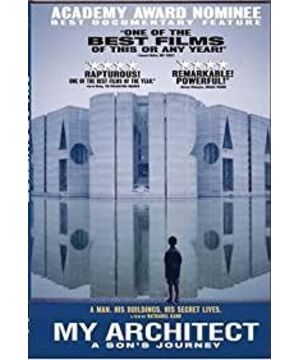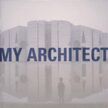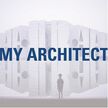Five years ago I was waiting at a train station in Philadelphia, the radio announced that it would be late, and the middle-aged man in front turned to me and said, "Look, this never happens in Japan and Sweden." He seemed to be joking. It made the atmosphere relaxed, but his slightly nervous temperament made me nervous too. Later I learned that he was the director of the film, Nathaniel.
We chatted, and he told me he was a Yale Philosophy graduate, and when he learned that I had just graduated from Penn, he happily started the cliché—you have to be yourself, do what you really want to do, blablabla. I thought it was boring at the time, after all I've heard this stuff countless times. But now I understand a little bit, this is his real life experience.
I saw someone in the short comment saying that Nathaniel wanted to make money from his father's reputation through this film. I can't help but sigh, how can it be so simple, it's too small to look down on human beings.
What is it like to be a bastard?
I want to be seen all my life.
I spent my whole life wondering what was going on.
Like Louis Kahn said, money is nothing. Money is a very limited driving force. What Nathaniel really wanted was to be visible, to figure out who he was.
He started filming "My Architect - A Journey to Find My Father" at the age of 36, approaching middle age, and Louis Kahn has been dead for 25 years. But Nathaniel's thirst to understand Kang still scratched at his heart, and 25 years had not extinguished it. Due to all kinds of suspicion and slander, he probably hesitated for many years about whether to make this film, but he was also constantly preparing in the hesitation. He was doing what he really wanted to do, and that got him an Oscar nomination.
Bastard, Nathaniel has mixed feelings about the title. He told me at the outset that he was not his father's legitimate son and that "my father lives with his wife and other children". I was a little puzzled by such a deep self-disclosure to a stranger. He seems to be deliberately showing that he doesn't care about this name, but the more he expresses it like this, the more he shows his anger.
In the film, he rudely and directly asked his father's close colleagues who have worked with him for many years: Did you know that he has three families? The colleague quickly took off his glasses and shook his head: I didn't even know he was married. He also kept his aunt's description - Nathaniel's tender and romantic mother who was startled to realize her child was a bastard when she divided the property.
He's also full of anger at his mother's inconsistency - do you really believe he'll come back and marry you? After his mother answered firmly that he believed, he still asked persistently, do you really believe? I guess he won't be satisfied no matter what answer he hears. So in the end the answer to this question is the back of the mother hurriedly running away.
Nathaniel wanted to know what kind of father the whole world knew, who made half of his life, but he didn't know. He probably fantasized countless times about how he would play in his company. When my father was not around, I was jealous of the children of another family countless times.
There is a very beautiful section in the film. He skillfully skates a wonderful ice in front of the California Sark Institute of Biological Research (one of Kang's most classic works). Although he was not accompanied by his father in childhood, he has made a lifelong effort when he grows up. Playing in the completed building is tantamount to playing in his arms.
During this trip, Nathaniel came to realize that his father was almost never in the family, not with him, or in any other family. He has a mission of his own, and he has done his best to accomplish that mission all his life. He also gradually understood that although his father was not in his life, he was everywhere.
When he walked out of his own world and walked into his father's world, the original hatred, jealousy and confusion that could not be resolved for 25 years were gradually resolved in a wider time and space.
Nathaniel should be more and more when Bangladeshi architects tearfully thank Kang for his decades of effort to build a monumental building for this impoverished country (the enemy bombed it, thought it was a monument, and let it go) I can definitely see the light of my father's soul.
Kang said---"Between the silence and the light, the soul is born." And Nathaniel, in the silence of Louis Kahn's sudden death and the brilliance of his Kahn-style window, gradually traced the outline of his father's soul.
Just as Nathaniel was driven by an irresistible urge to track down and shoot the film, his father was driven by an instinct to "perfect" the will of "God" in his work. come out. They all have their own mission, different in appearance but the same in essence.
The beginning of the film brought back a lot of memories for me. No wonder Nathaniel heard that I was graduating from Penn, and his somewhat melancholy face immediately put a surprise on his face - he probably thought, I graduated from where his father taught, and every day in class, he passed his father's famous work Richard Laboratory building of the medical school.
I remember how I felt the first time I saw that building -- solemn. Penn's campus is one of the most beautiful campuses in the United States. Almost every building and every garden has a history of hundreds of years, gentle and beautiful. But the medical school is different. The building stands there, blocking a large area of light, and it is not good-looking, but the sense of solemnity will grab people all at once, and people can't help but stand there and watch for a long time, and dare not approach easily. . For many years I thought it was the atmosphere of the medical school itself - life and death gave the building a grim aura. Now it seems that it is actually the taste of Kang, from the combination of ancient grandeur and modern simplicity.
Nathaniel doesn't look like his father, he's tough and direct, but he's actually very emotional and reserved. We chatted happily all the way. When I got to New York, I was about to get off the car. He suddenly stopped me and asked me if I wanted to leave a contact information. He said that he was a director and made a film. If I am interested, he will send it to me. Look. I leave the mailbox to him. Received his email after getting off the bus in New York.
He must have struggled in his heart for a long time before he finally decided to tell me the secret about his life experience in such an obscure way. But in my opinion at the time, this secret was not well understood.
Can I understand now? I prefer to say that through this film, I have a better understanding of my past experiences and the people I have met. There are indeed a lot of people in the world who have to create something and put money out of the way. And such a person is irresistible.
Just like Louis Kahn, he has three families not because of downright fancy, but because of his original intention to create the perfect building. At work, he meets one woman after another who loves him and fully supports him. Some help him to put the buildings he wants to create into reality, and some integrate nature and love into his cold buildings. Esther, as a lifelong wife, gave him firm financial support to help him realize his dreams. Part of the reason all three women have no regrets is because they all know they're working on something bigger and farther.
What Louis Kahn loved in his life was probably only architecture, and he fell in love with these women through architecture. But these women love him, and they are practicing true love.
I don't agree with Kang's approach, but I understand that people who are in genuine love can't help it.
View more about My Architect reviews









